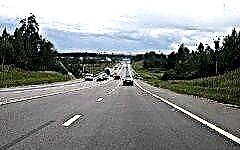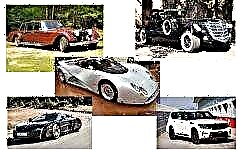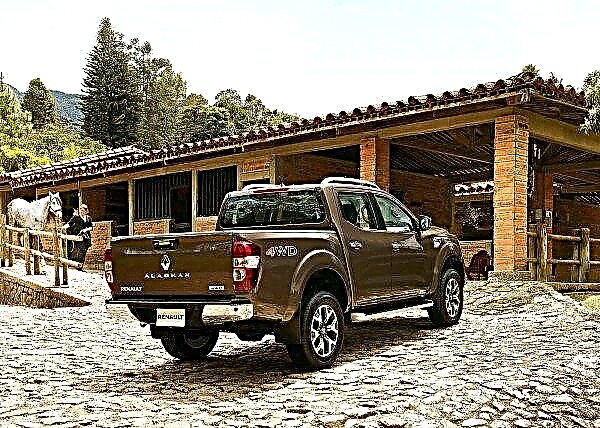

The content of the article:
- What prevents you from passing the exam the first time
- What is the traffic police exam and how to pass it
- Minor but important nuances
The situation on the roads is getting more complicated every year, the requirements for driving schools and examinations in the traffic police too. However, getting the license is not so difficult as the legends and stories of the would-be cadets overgrown with incredible "facts" tell.
What prevents you from passing the exam the first time

Stories about evil examiners who "knock down" innocent and virtuoso novice drivers, "nightmarish" questions on testing and unfair treatment of examiners are passed from mouth to mouth and frighten cadets. However, the traffic police exam is not so terrible as those who could not pass it draw.
There are three main reasons for failure:
- Didn't learn the theory;
- Didn't work out the practice;
- I learned everything and worked it out, but I was frightened by the stories about the horrors happening in the dungeons of the traffic police, and fell asleep in the most stupid way.
Also, these reasons are often combined with each other. Minor nuances may also be present, for example, errors due to absent-mindedness, distractions, a bad mood of the examiner, etc. But the main ones are still a lack of knowledge and a psychological factor.
What is the traffic police exam and how to pass it

First you need to collect all the necessary documents that will be needed to obtain a driver's license.
Going to the State Traffic Inspectorate in order to sign up in the queue for obtaining a license, you must have with you:
- driver's license, if any;
- a written or electronic statement sent to the traffic police website;
- conclusion on the passage of a driving training course in a driving school;
- identity document;
- medical report confirming admission to driving a vehicle;
- written permission from parents to receive a / u (for persons under 18 years of age).
After the staff study the submitted papers, a date and time for the exam will be set.
The traffic police exam consists of three stages:
Stage 1. Testing
In order to pass it, you just need to learn the answers to questions, a list of which can be found in a driving school or found on the Internet. There is nothing complicated or nightmarish about them, as some say. It just takes a little time and patience.
Answering the questions you should:
- read them carefully;
- answer just as carefully (often mistakes are made not out of ignorance, but because of absent-mindedness);
- behave calmly and not annoy the traffic police officers with attempts to cheat, talking with strangers, defiant behavior, etc.;
- do not rush; time for the decision is allotted in such a way that the person has time to do everything at a calm pace.
Stage 2. Work at the circuit
Here, representatives of the traffic police will test the skills of performing certain exercises that the cadets had to work out during classes at a driving school. If you and your instructor have spent enough time mastering the required skills, then there should be no problem.
It's another matter if the exercises have not been mastered. There can be two reasons for this.
- The cadet is not serious enough about "boring" activities.
- The instructor does not take classes seriously. If in the first case, comments are unnecessary, then here the future driver should take the initiative - to find a tutor, ask a friend or, if possible, do the exercises on their own.
Stage 3. Test in the city
The most difficult of all stages, since in addition to practical and theoretical knowledge, the driver has to fight with psychological "monsters".
What is required to pass the test:
Learn the rules of the road
Not the answers to the tickets, but the rules. And not only because knowledge of traffic rules is necessary for every driver. Examiners like to set traps for their "charges", asking, for example, to stop in the wrong place. For the same reason, you should carefully follow the road signs. Tricky questions and assignments are the most common reason for retaking. It is from here that the legs of the legends about the evil representatives of the authorities who "bring down" everyone in a row grow.
Not only learn the rules, but also follow them
The most common reasons for retaking:
- did not miss a pedestrian;
- stopped in the wrong place;
- ran into a curb during a U-turn;
- did not turn on the turn signal;
- exceeded the speed limit;
- violated the rules for crossing railway tracks;
- did not give way to the transport that had priority;
- crossed the stop line;
- I ignored the prohibitive traffic light;
- drove into the oncoming lane, etc.
Prepare yourself psychologically
At this stage of the exam, newcomers are overcome by two types of fear - fear of the examiner and fear of driving on a real road.
As for the fear of city streets, you should convince yourself that there is a qualified specialist nearby who will come to the rescue in case of an unusual situation. The worst thing that can happen is that you have to retake it.
The same suggestion applies to fear of the examiner. The worst thing that can happen is that you don't get your license the first time. There is nothing wrong with that, many retake several times. But if you do not dwell on this fear, then the chances of getting a certificate on the first attempt will increase several times.
Minor nuances worth paying attention to

In addition to theoretical and practical skills, secondary factors should be considered. They are not so important, but they can still affect the results.
Choose comfortable clothes and shoes
First of all, this applies to future auto-ladies.
Comfort always comes first, especially if you need to focus on something more important than the condition of your stockings. Not to mention the fact that stilettos, voluminous jewelry and other attributes of femininity will only interfere with the management.
The same goes for perfumery. If your goal is to get the rights, and not provoke migraines and irritation in the examiner, then it is better to refuse the perfume.
Don't use a sedative
Perhaps, during testing, it will do a good job, but at the autodrome and even more so in the city, a good reaction and a fresh head are needed. And sedatives not only slow down the reaction, but often create a "brain fog".
Adjust the seat
This is very important, as an incorrectly installed seat can cause a lot of trouble. How many people did not have time to brake in time, because they did not reach the pedal, and they were ashamed to adjust the chair to their height.
Fasten your seat belt
What kind of tests and knowledge of traffic rules can we talk about if the examinee does not even know that he is obliged to wear a seat belt.
Try to be among the first to change.
- This suggests that you are not afraid of trials, and, therefore, are ready for them.
- You are not tired, waiting for your turn, have not heard enough of scary stories from "fellow misfortunes", have not had time to see enough of those who failed the exam and talk about it in all colors, painting terrible pictures.
- The examiner is also not tired and is good-natured towards the subjects. Not a fact, but the probability is higher.
Remember that you are still a beginner
No matter how wonderful a driver you think you are, you should not defiantly demonstrate your "experience" to a traffic police officer.Even if such confidence is based on it (which in most cases is not true), it is not a good idea to annoy the examiner with overconfidence. If desired, he will find a reason to refuse to issue a certificate, and on completely legal grounds, since there is always a nuance in the rules that can be ignored and not done.
Do not take unnecessary and valuable things with you
In any case, stress awaits you, strong or not, but it will be. And in such a situation, people necessarily forget about something, lose something. Therefore, going to the traffic police, try to limit yourself to things that fit in your pockets. This will save you from the need to look for a purse with money or a purse that has left in the car with another test or forgotten somewhere. There is no need for unnecessary problems in such a situation.
Conclusion on how to pass exams in the traffic police
Lack of practice and psychological barriers are becoming a frequent obstacle to obtaining a driver's license. It is not the main thing to undergo training in a driving school, the main thing is to have a desire to become a full-fledged driver. And for this, you will have to purposefully study both the theory and practice of driving, because even the best instructor will not prepare a student for tests, both examinations and on the road, against his will.











